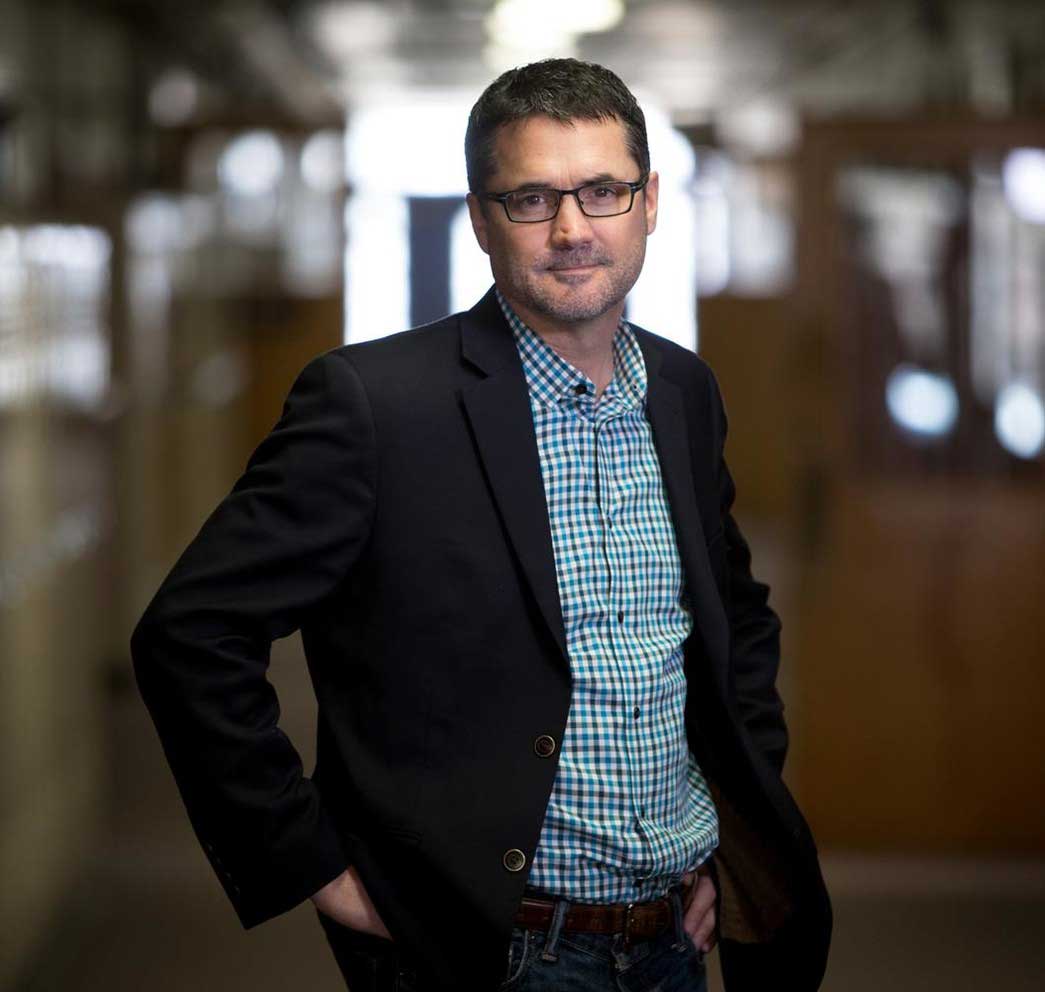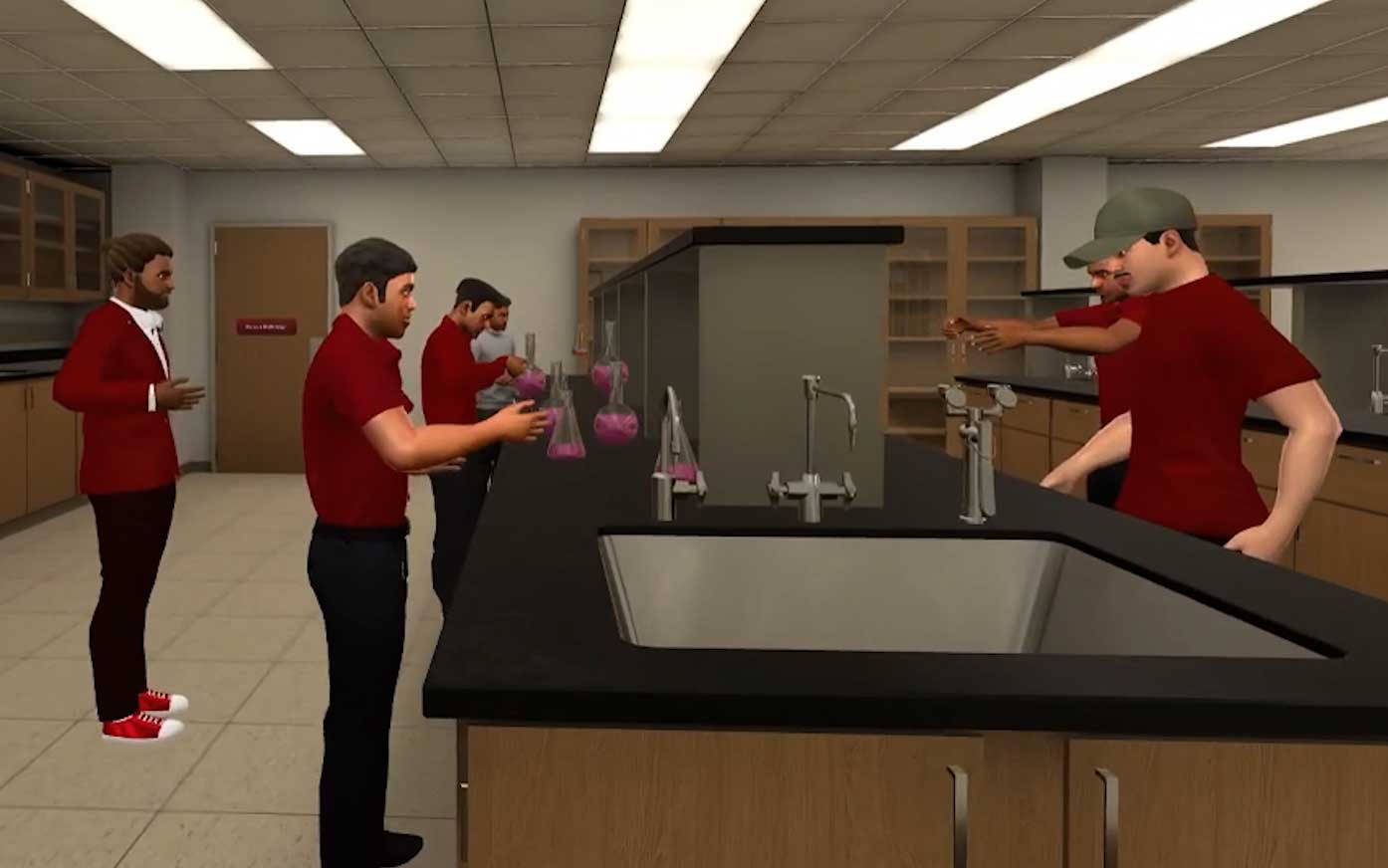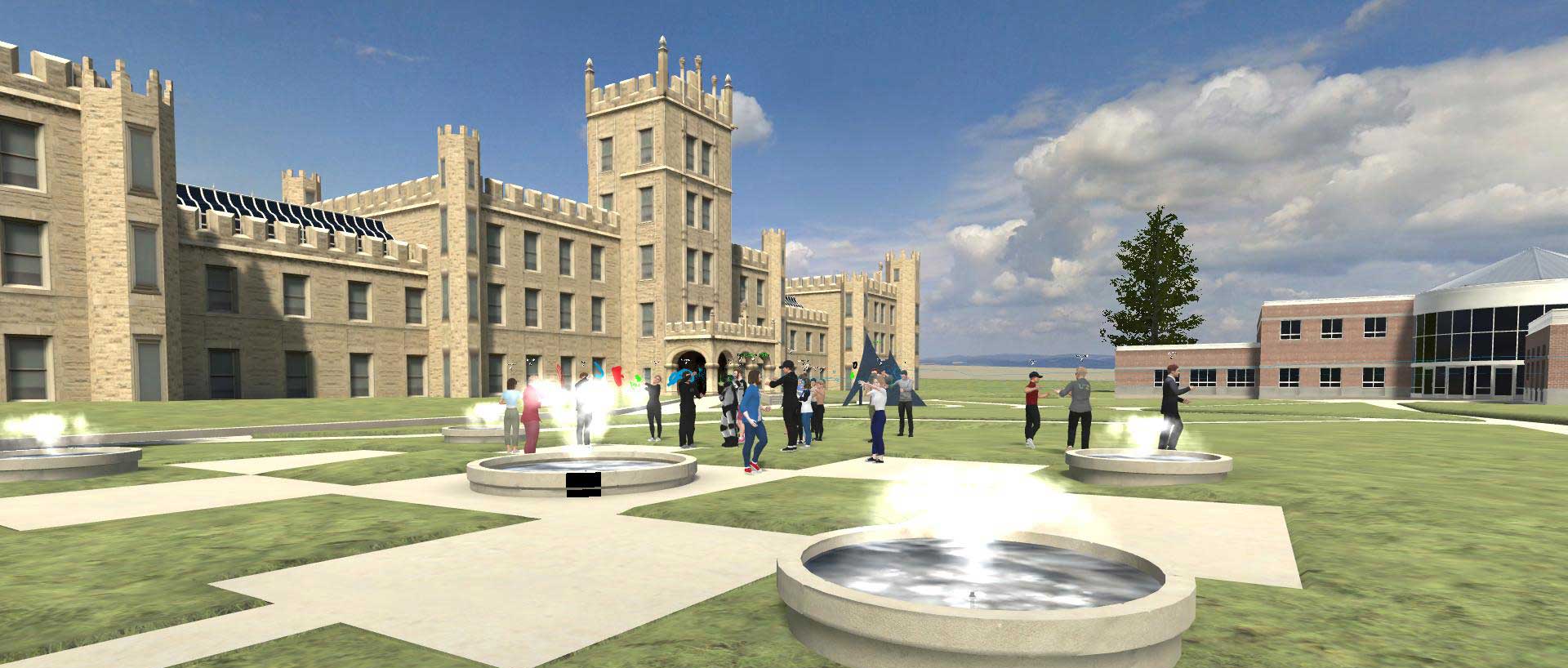Learning Virtually Anywhere
Iowa edtech startup VictoryXR creates schools of the future
A chemistry class shrinks to fit inside a molecular model.
Elementary schoolers from across the globe travel together to the Galapagos Islands.
Students step back in time for a march across the Edmund Pettus Bridge with Civil Rights leaders in Selma, Alabama.
These seemingly impossible educational experiences are all happening thanks to Iowa-based edtech company VictoryXR and its pioneering virtual reality learning platform. The Metaversity concept, which creates “digital twin” models of campuses and classrooms, is quickly gaining traction as a more dynamic approach to online learning. Enrolled students don a headset and use handheld controllers to participate in immersive coursework with credentialed teachers. It's a free product that’s compatible with PCs and tablets, which expands access to Victory XR content worldwide.
Colleges and universities eager to find new ways to attract, engage and retain students are buying into the technology. VictoryXR is currently working with more than 100 institutions—and counting. Many K-12 schools are also adopting decentralized edtech platforms to connect learners with a broader range of experiences and experts than those available through a traditional curriculum.

“We are building the School of the Future from my school in the past,” said VictoryXR CEO Steve Grubbs, who chose to headquarter the growing startup out of the decommissioned Davenport public school he attended as a child. Steve gets a kick out of collaborating with people across the globe from his office in the former teacher’s lounge.
“We deployed our very first product just south of Davenport, so it's a uniquely Iowa story,” Steve said. “Now we are the global leader in Metaverse education.”
Recent press from Forbes asked “Will 2023 Be The Year Of The Metaversity?” By proving it can capture the attention of the Minecraft generation, it just might.
Expanding Access to Education
The path to developing VictoryXR emerged out of Steve’s passion for education and enduring interest in exploring the latest technology. His father taught high school in the Davenport district for many years, and Steve led efforts that established the state funding for technology in schools to expand computer and internet access.
The opportunities and issues Steve saw during his time in state legislature exposed him to the need for innovations that could serve school districts large and small, both urban and rural. After trying on a virtual reality headset in 2015, he saw the potential and started training himself in the technology. He asked himself: How do we make sure every school has the facilities that right now only the wealthiest schools can afford?

“We make hands-on chemistry and biology labs available through Metaverse Labs,” Steve said. “This means that if you are in Strawberry Point, you don't have to spend $2 million on a build-out. For 1/100 of the cost, you can have these labs right at your fingertips.”
Putting quality teachers in the Metaverse was also a top priority. Steve tapped a Davenport Assumption science teacher to be the “Ms. Frizzle” of the Metaverse. Students all over the world learn how to dissect a frog from Wendy Martin, who was once named a “Top Teacher Search” finalist in a national competition. She takes them to interesting places, too.
“On these global field trips, kids can go to the Great Wall of China, they can go to Iceland, they can go to the Redwood forest — but the ones they seem to delight at the most is the dairy farm in Iowa,” Steve said. “How many people in their life ever stand in the middle of a herd of cows? They’re all trying to lick the camera, and from your perspective, you are the camera.”
Student Success that Scales
The company started in Iowa with a strategy to scale globally. VictoryXR capitalized on the advantages of doing business from Steve’s home state while attracting an audience of early adopters and partners online.
“We've landed most of our large enterprise deals with Microsoft and Qualcomm and T-Mobile through relationships we developed on LinkedIn,” Steve said.
Investments from Silicon Valley giant Meta have helped 30 campuses develop Metaversity programs, including Historically Black Colleges and Universities. A CNN story showcased how faculty at Morehouse College, an HBCU based in Atlanta, are already integrating immersive learning.

The segment introduced Dr. Muhsinah Morris, an assistant professor of chemistry who leads Morehouse’s VR program. She said she’s seen student learning blossom because the immersive experience eliminates distractions like phones and allows her class to inhabit the content in a new way. They can leave 2D textbooks behind and stand in the middle of a molecule to understand its makeup. Attendance and achievement among Morehouse’s Metaversity students both increased by double-digits.
Positive learning outcomes suggest the Metaversity is more than a tech trend. And as the virtual reality platform continues to expand to an international audience, Victory XR is leading the way.
“When I put on that virtual reality headset, it was like scales fell from my eyes,” Steve said. “I said, ‘This could be a big solution for getting students everywhere to learn more and retain more of what they learn.’”


